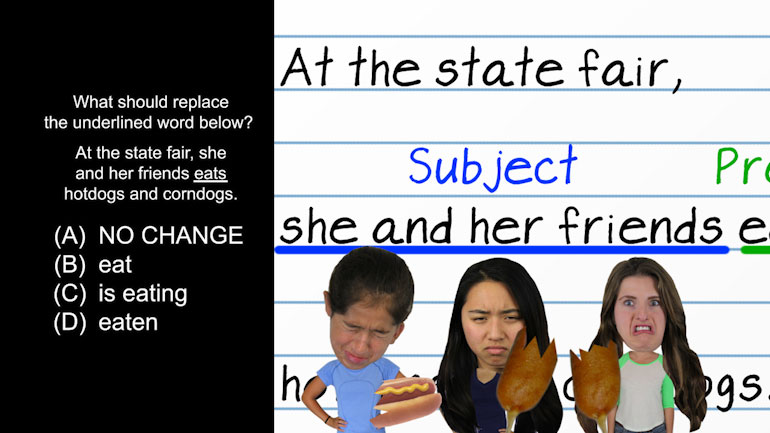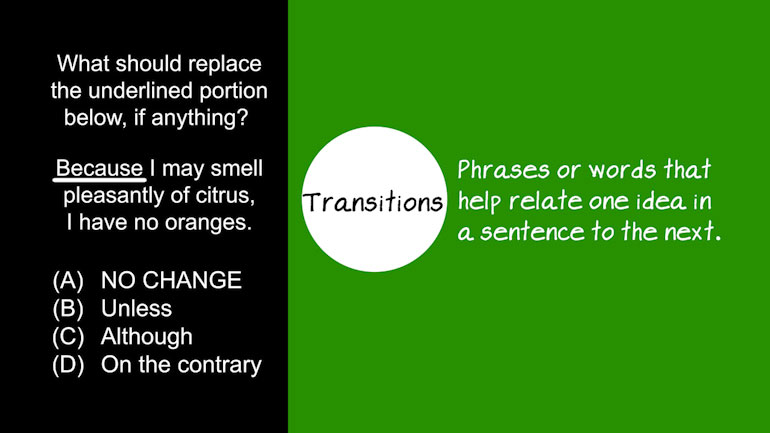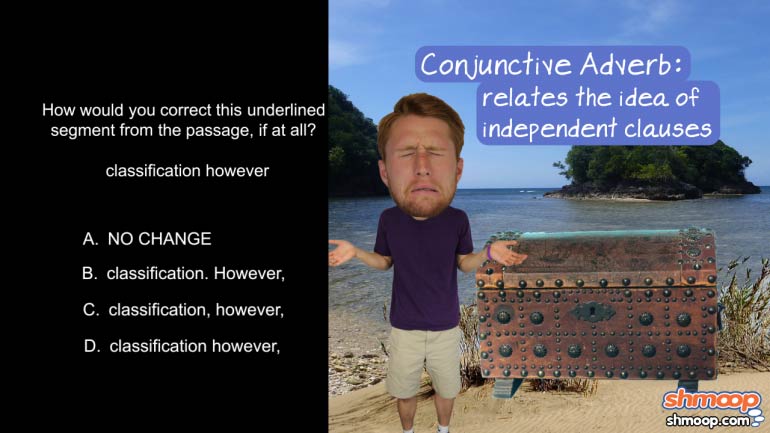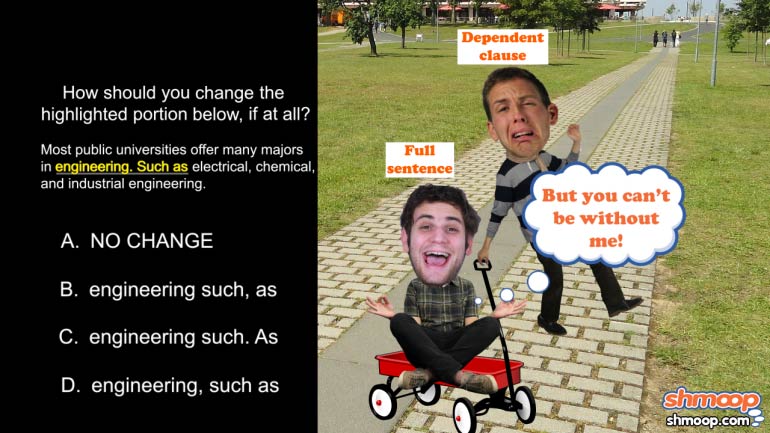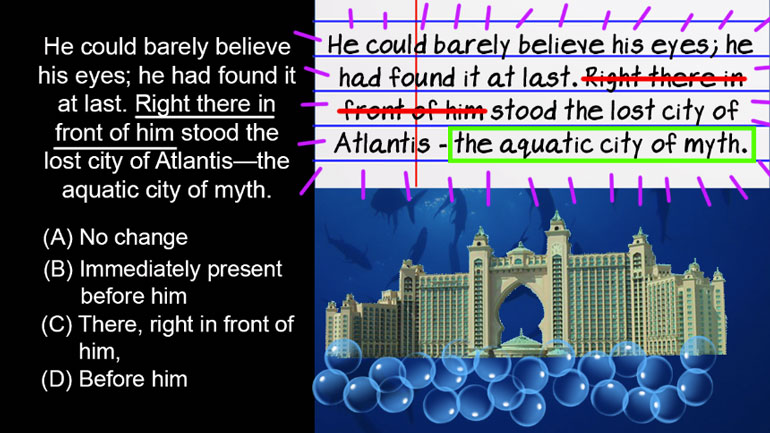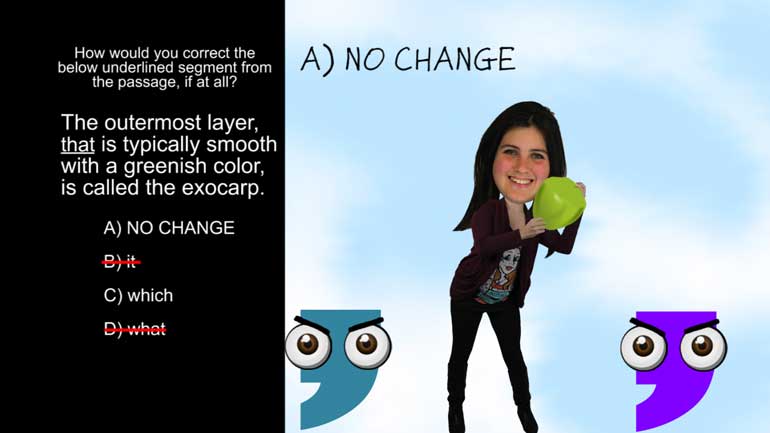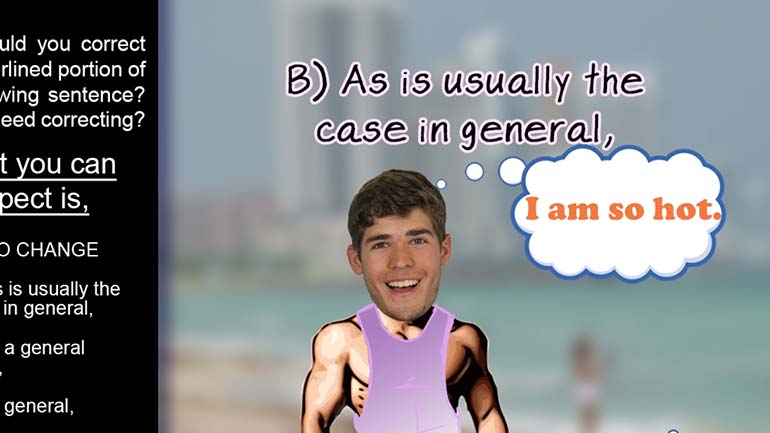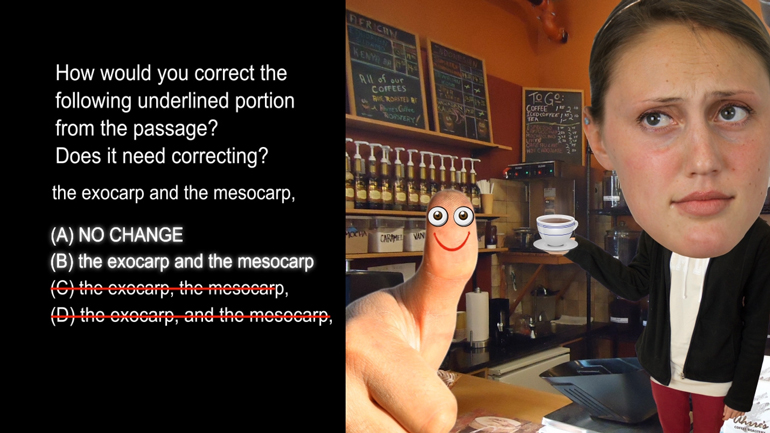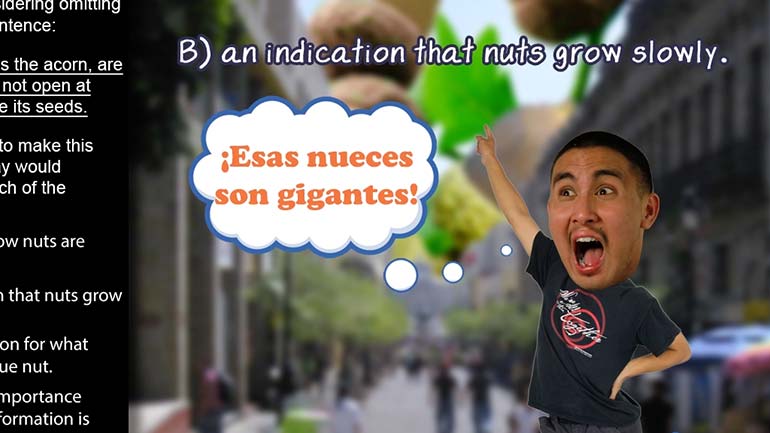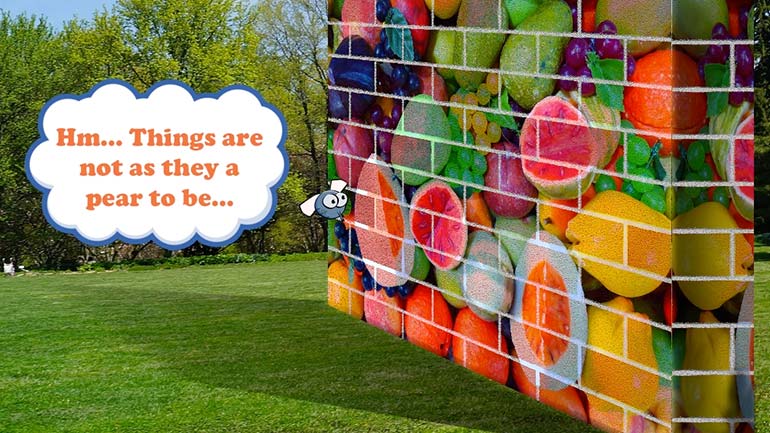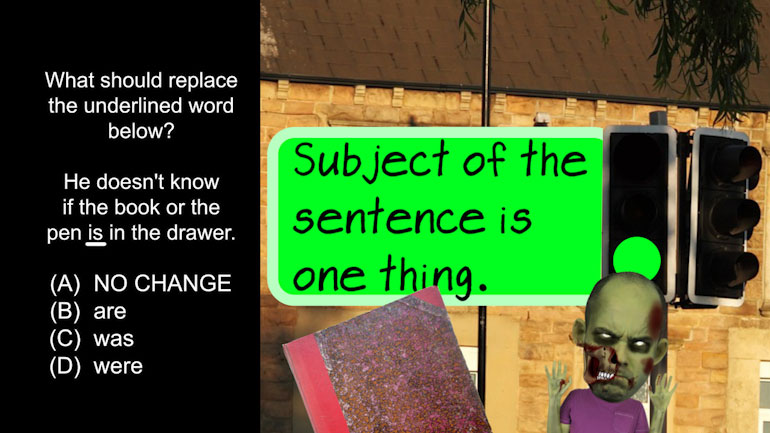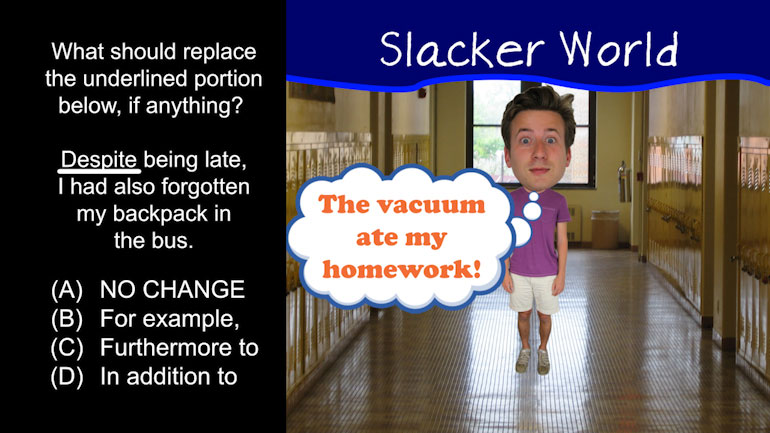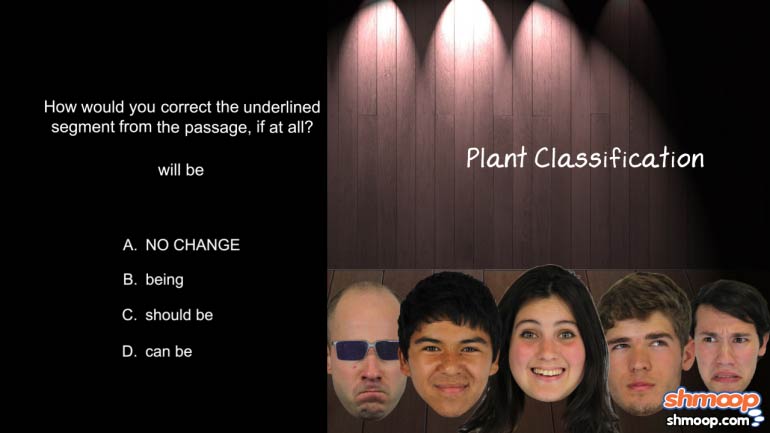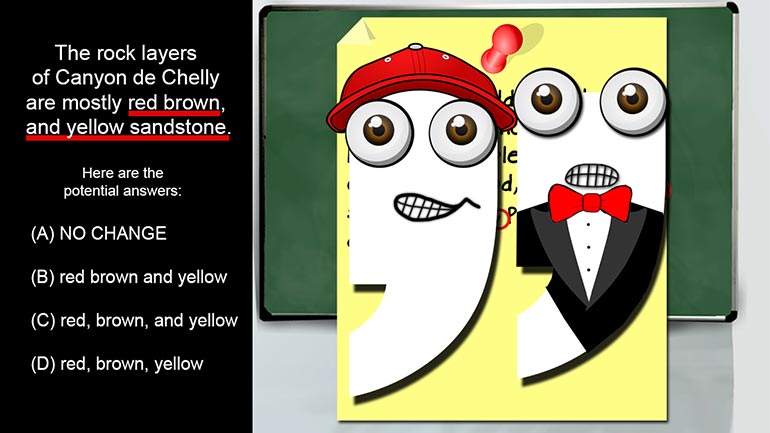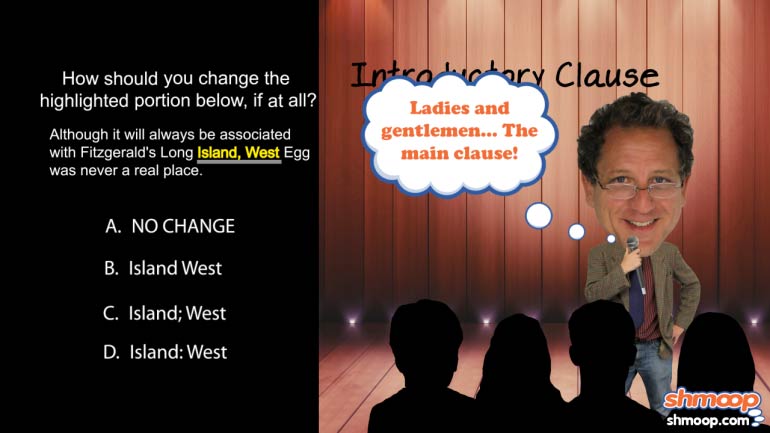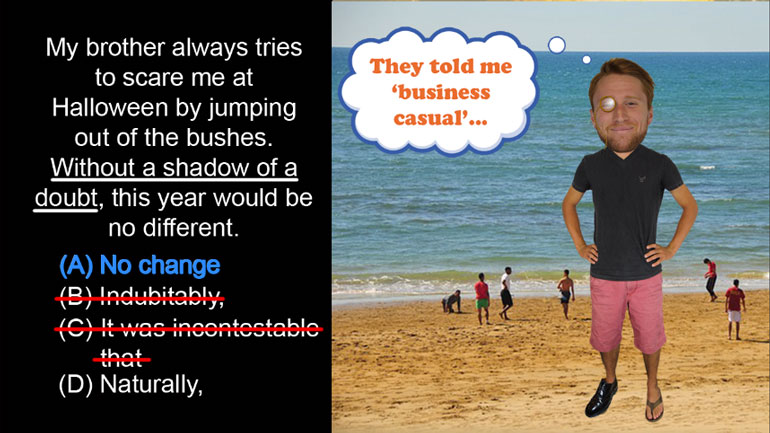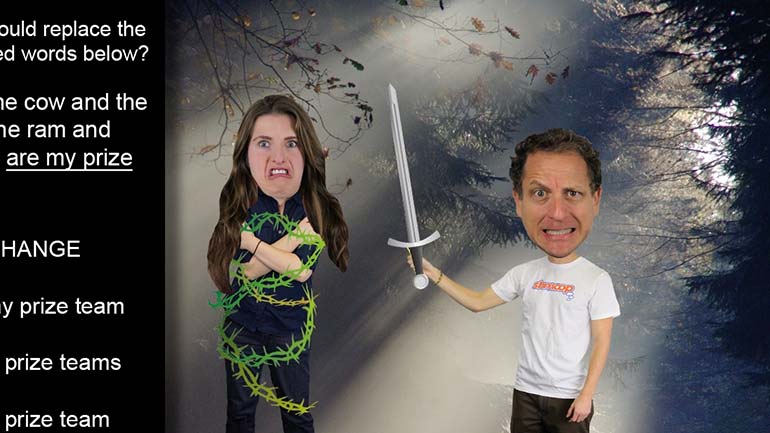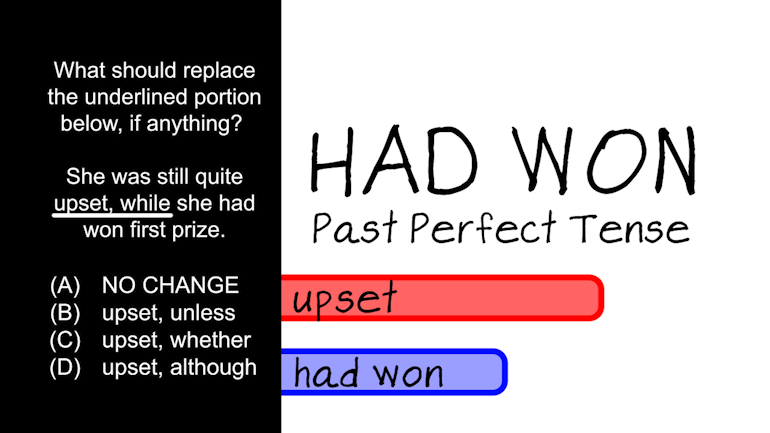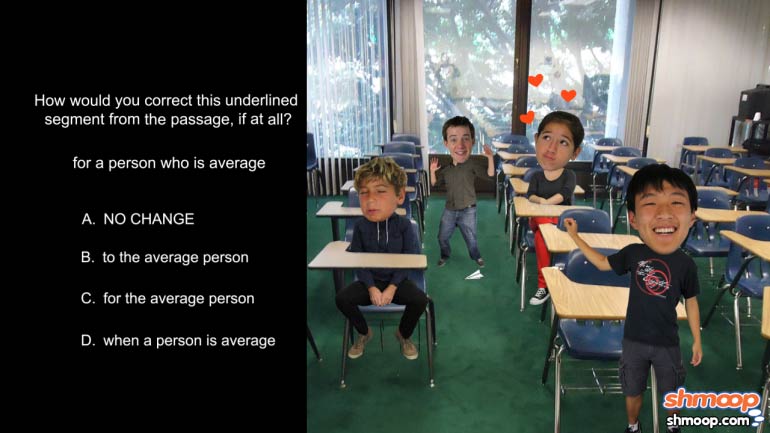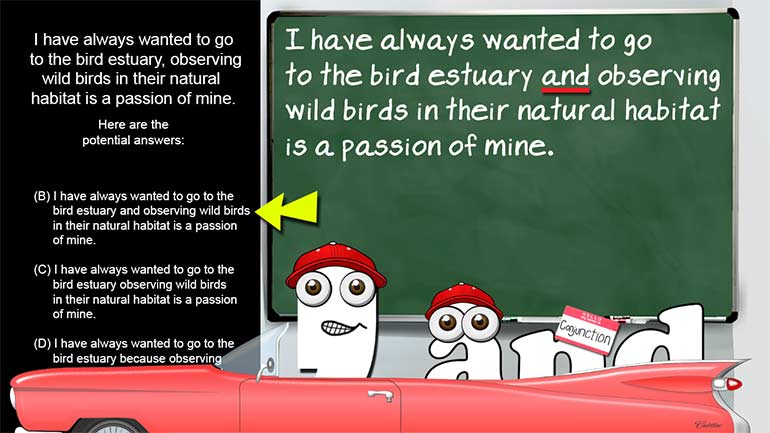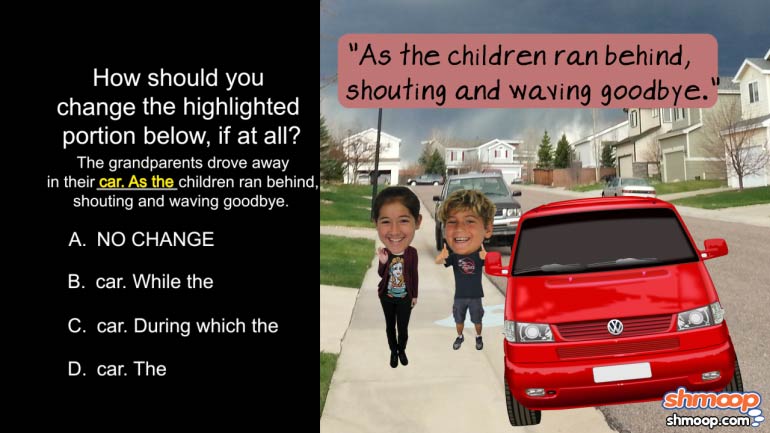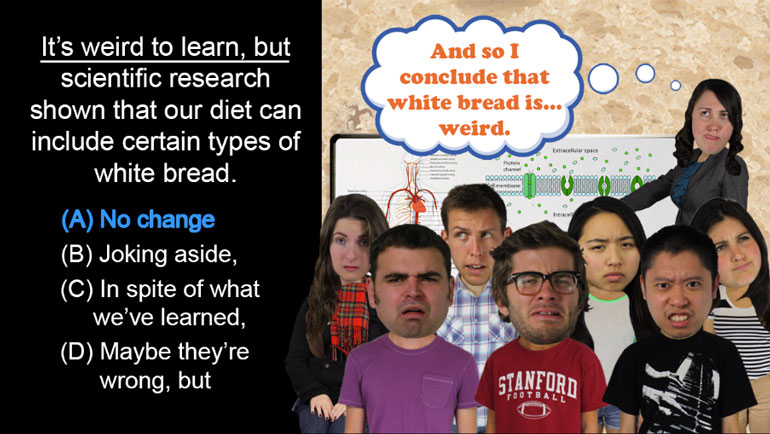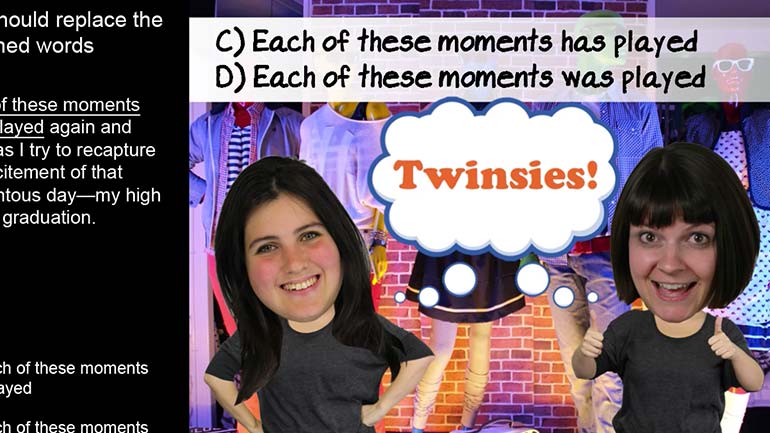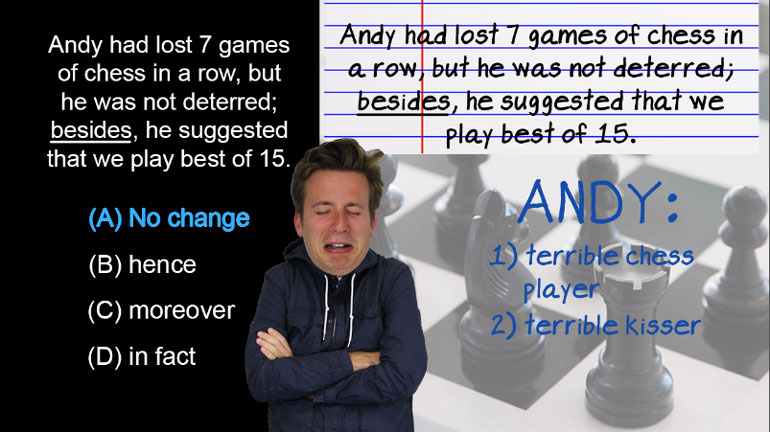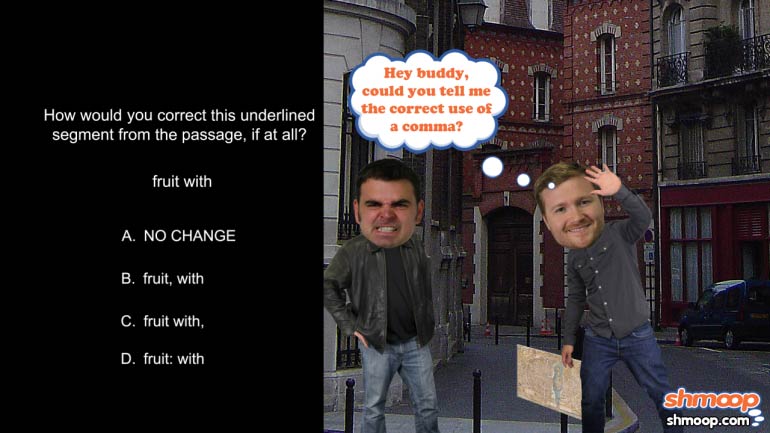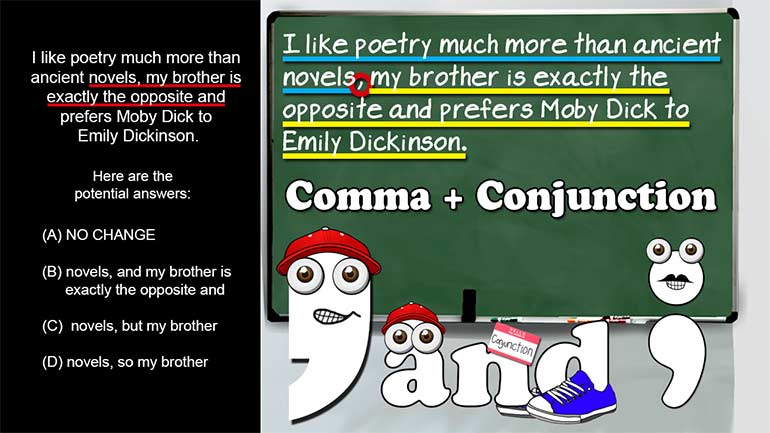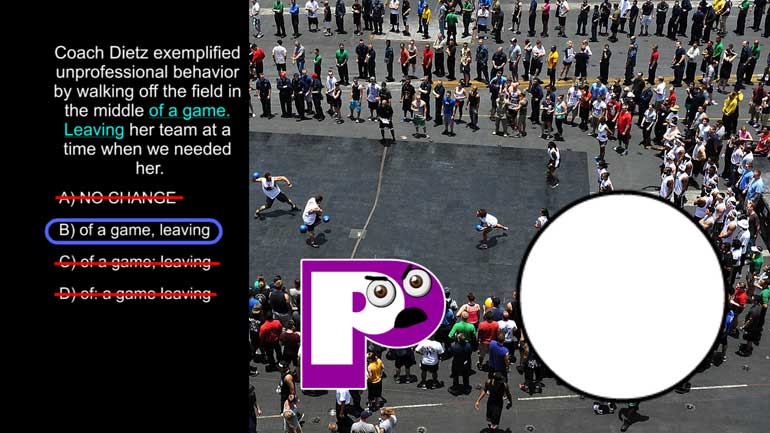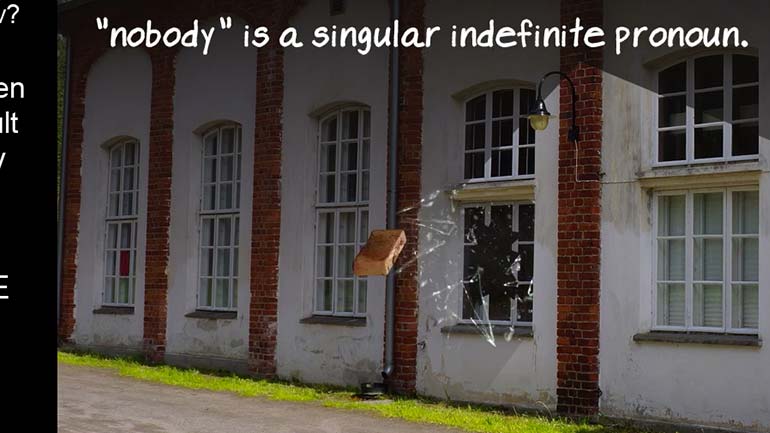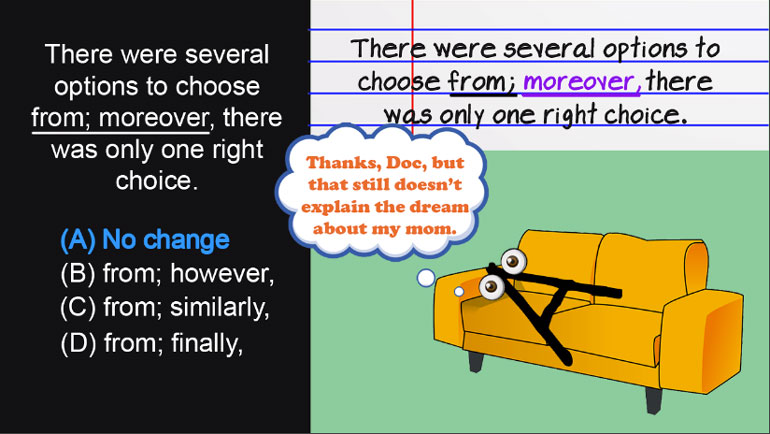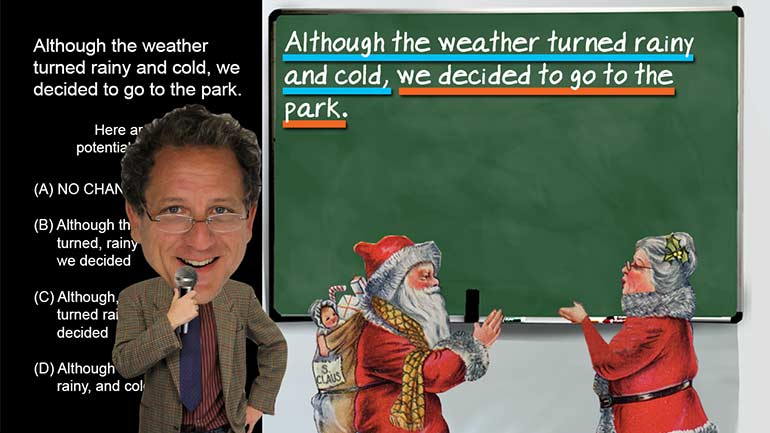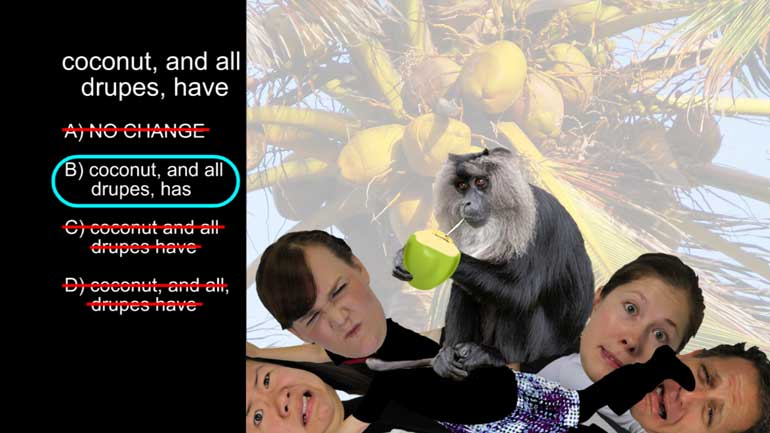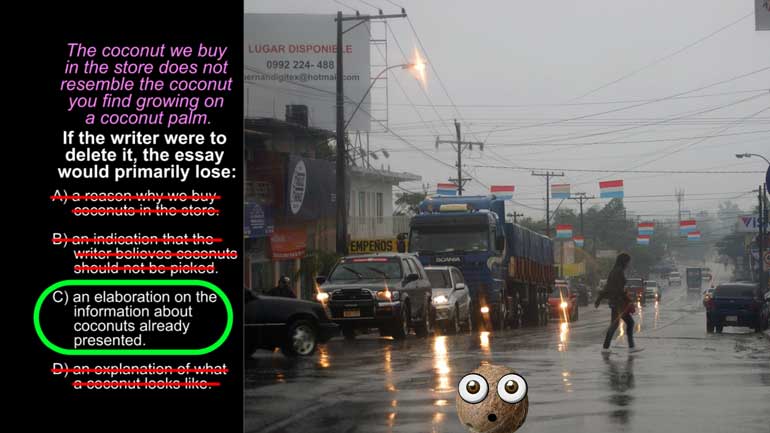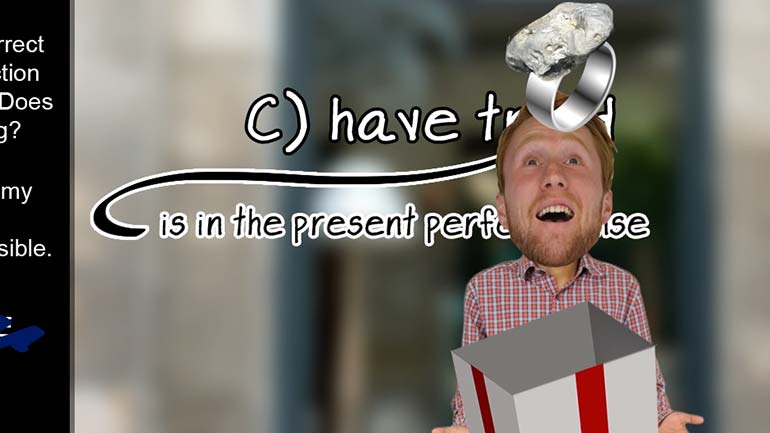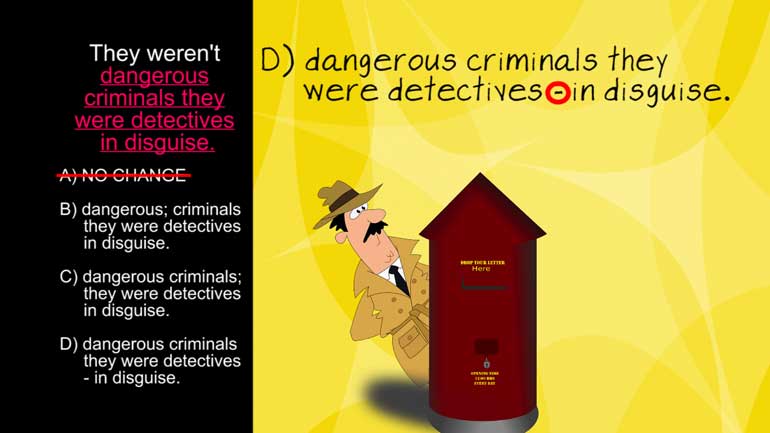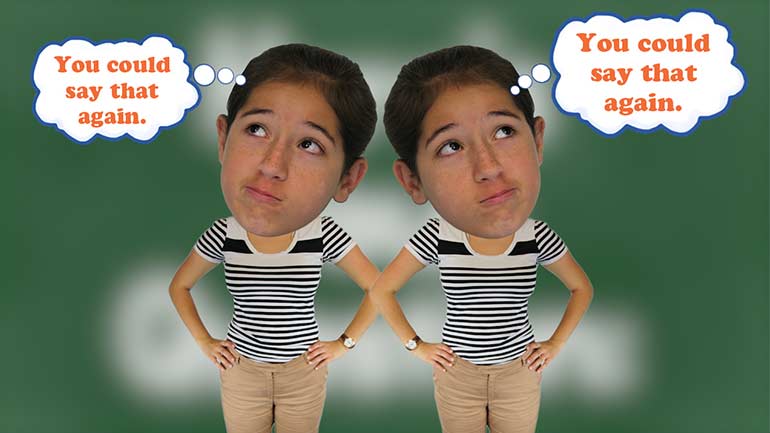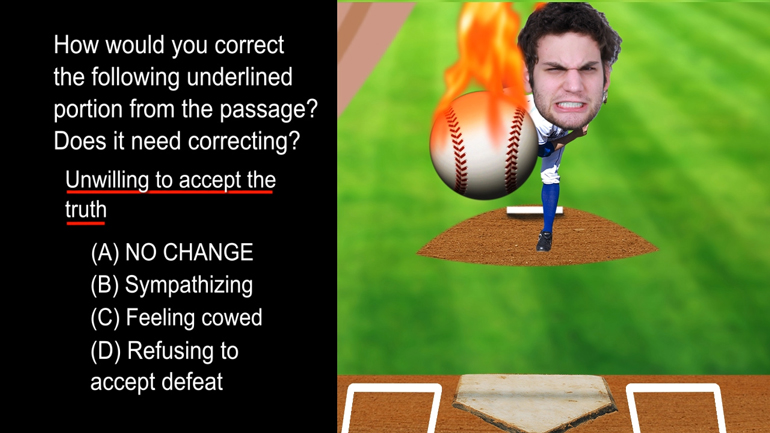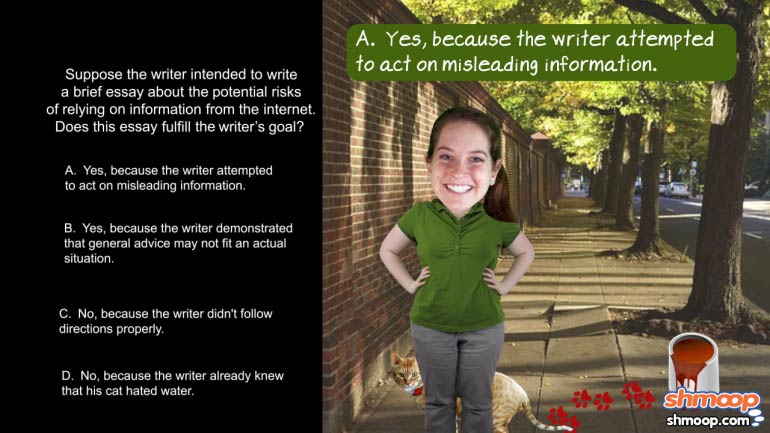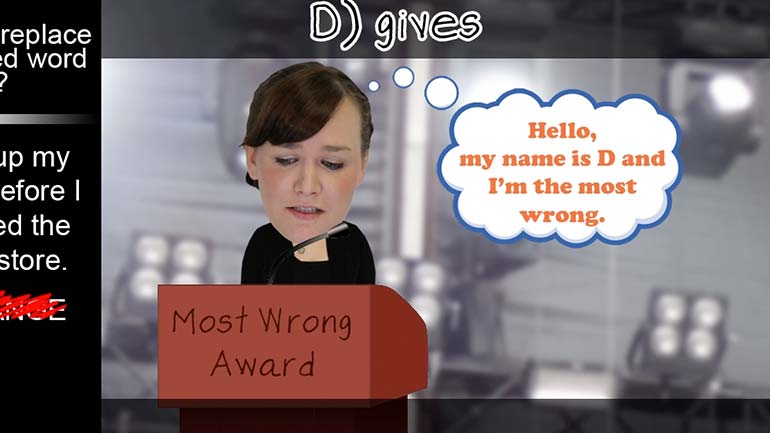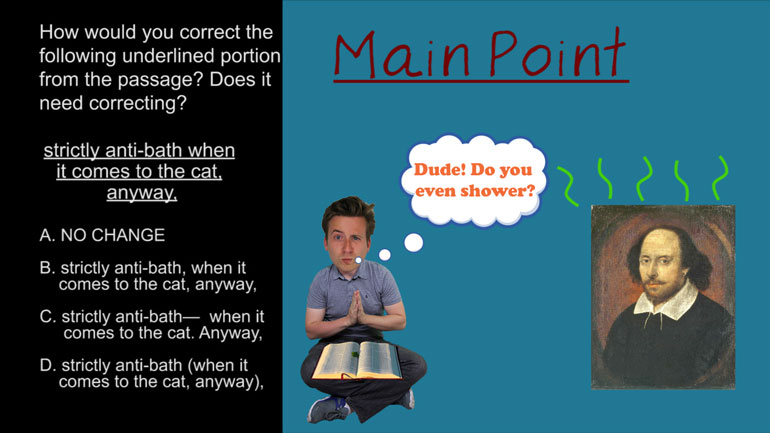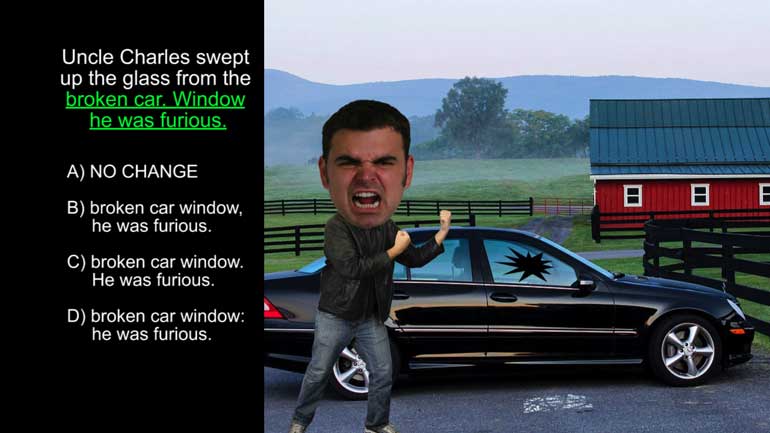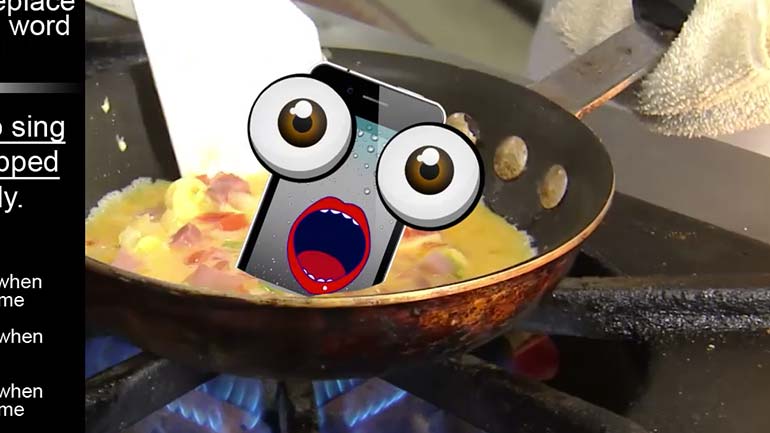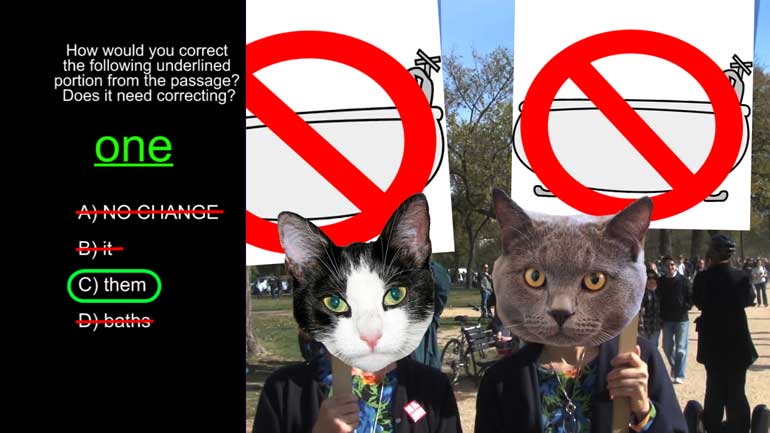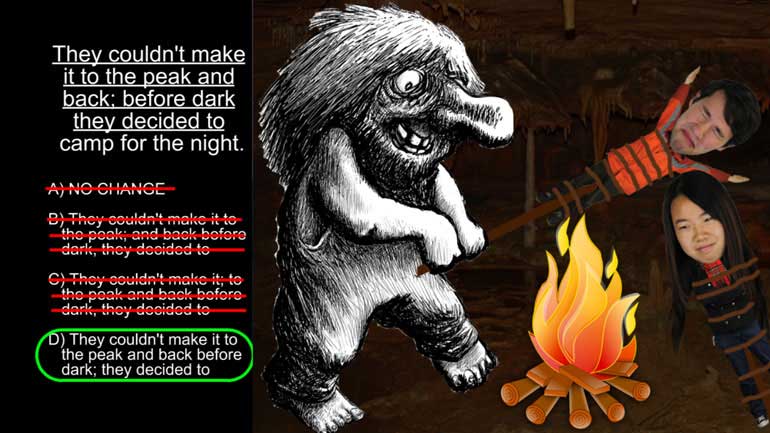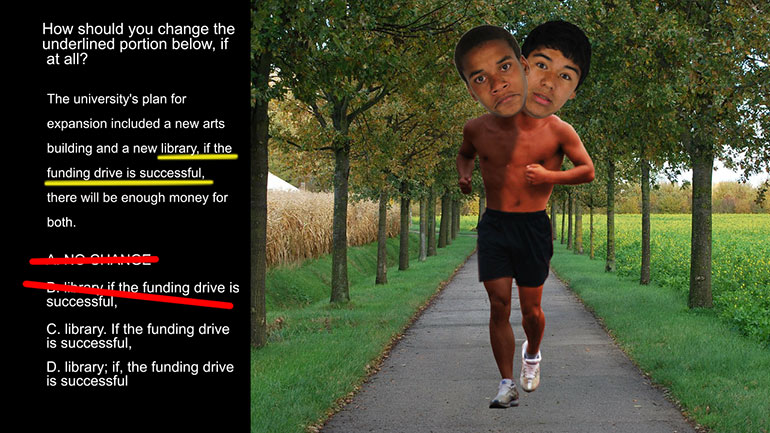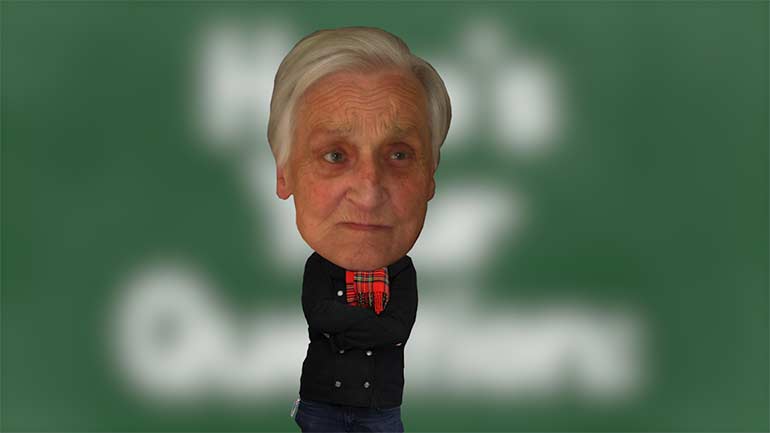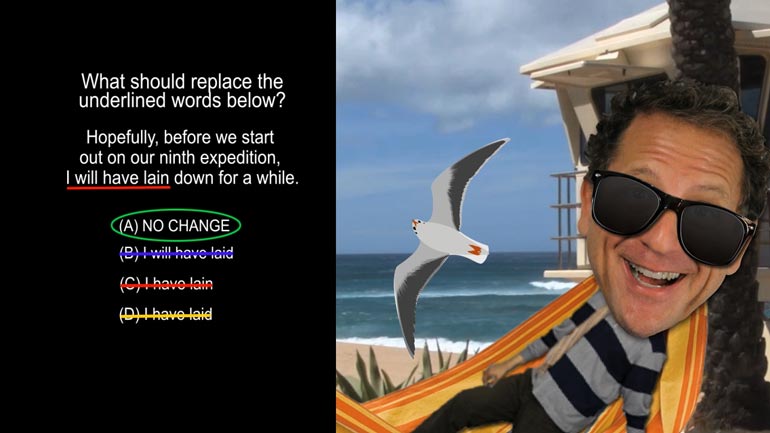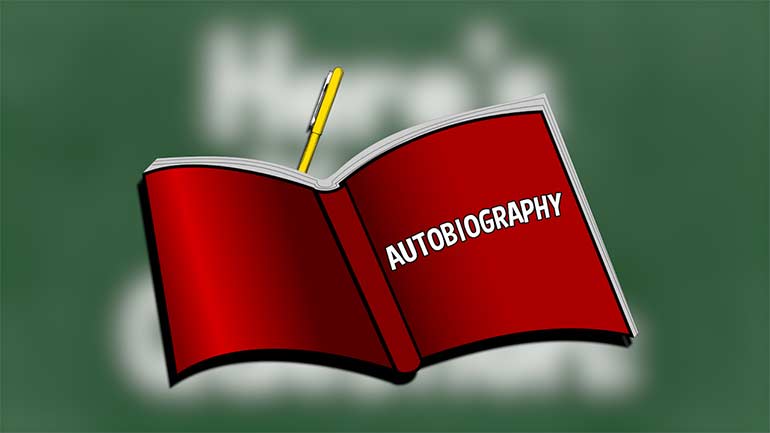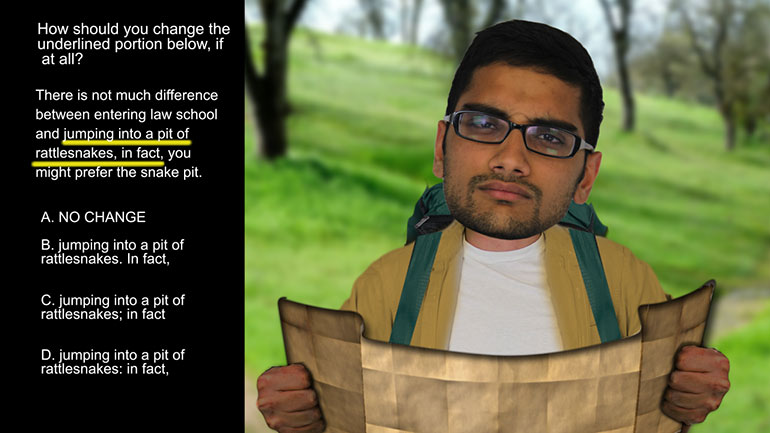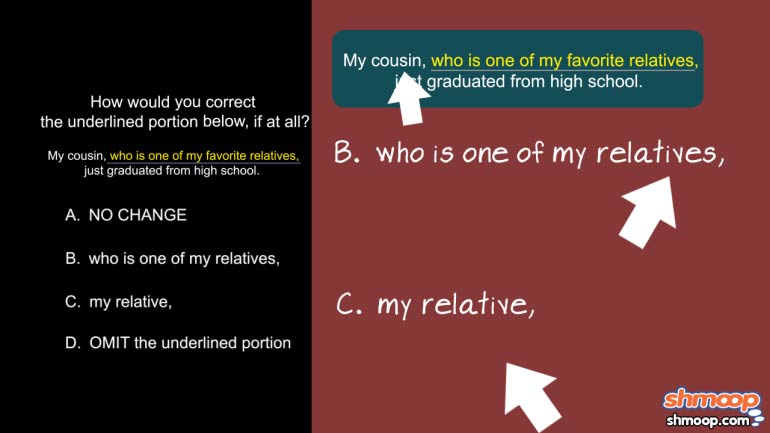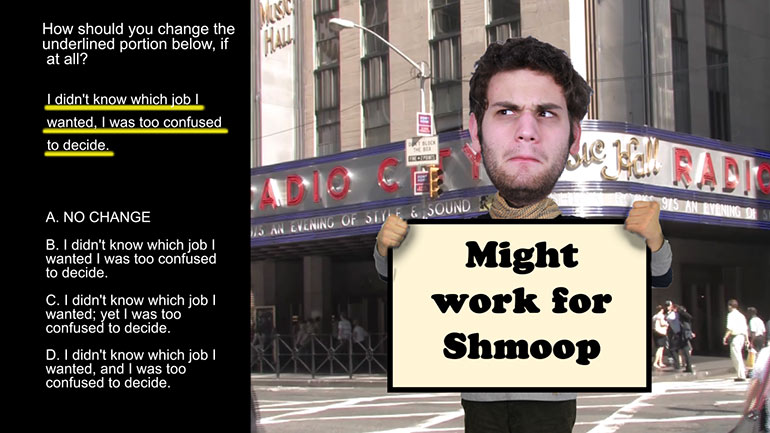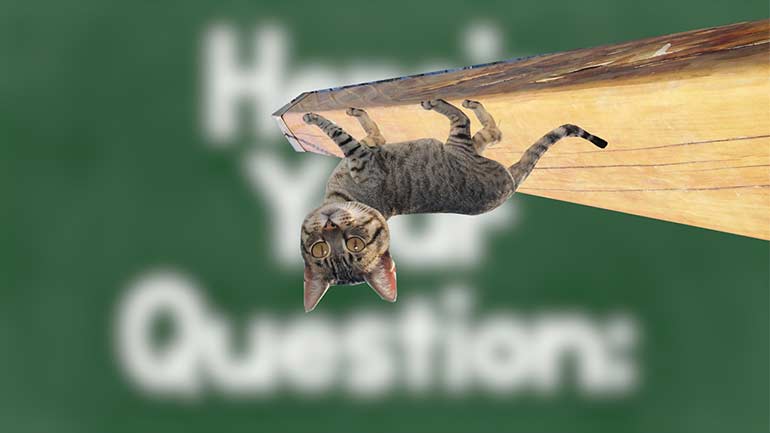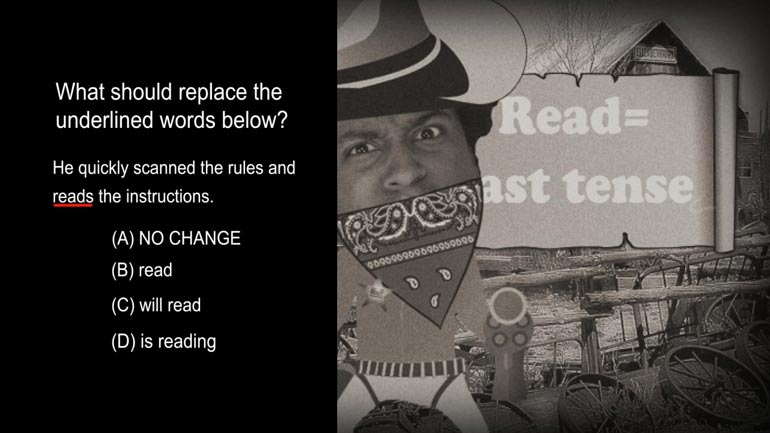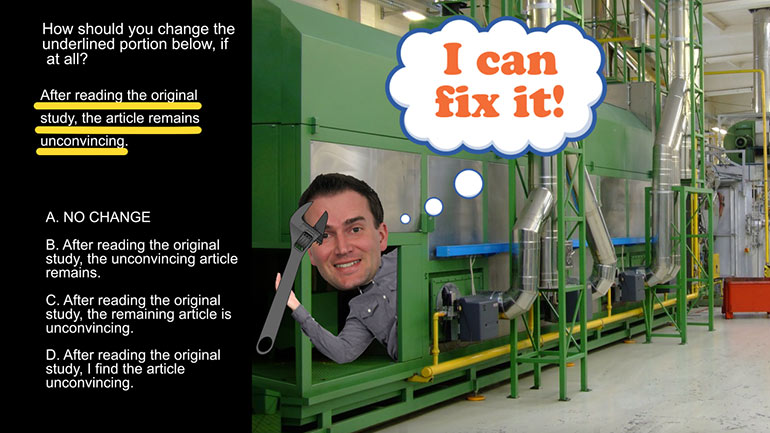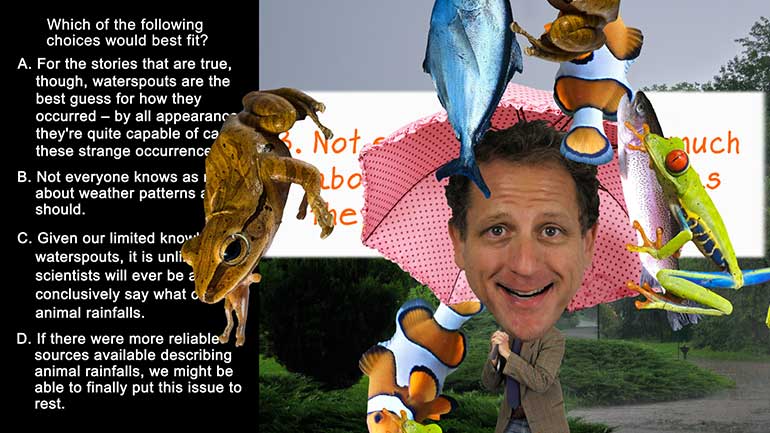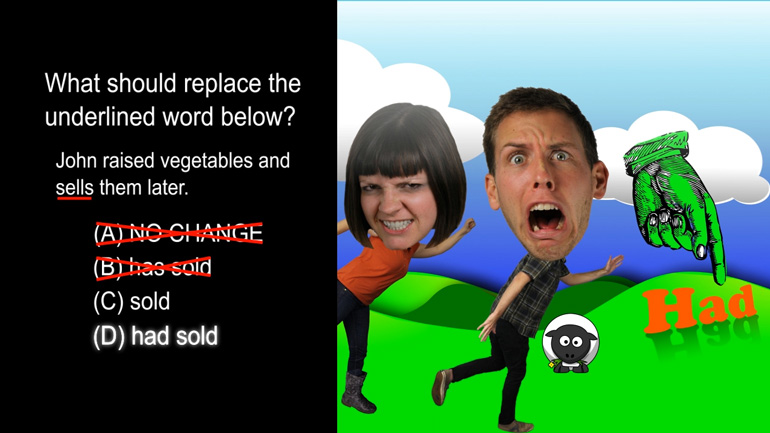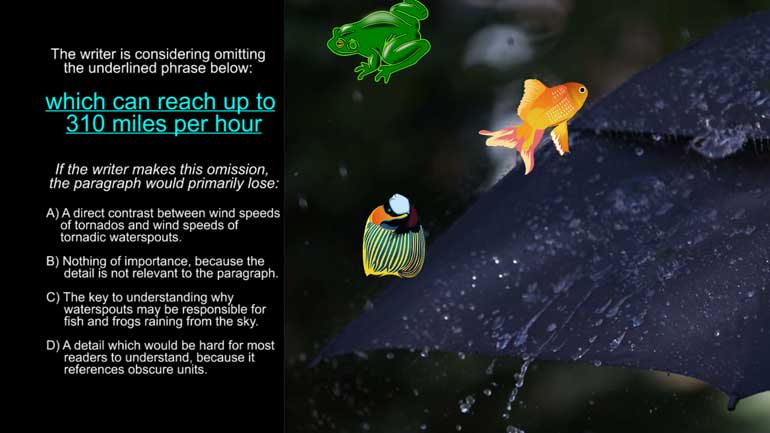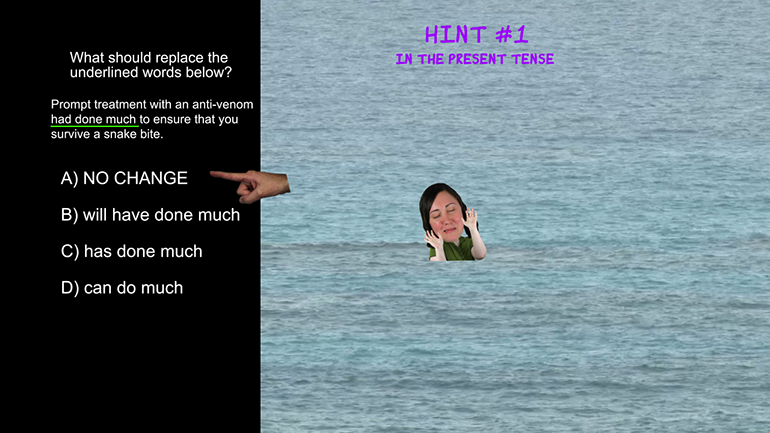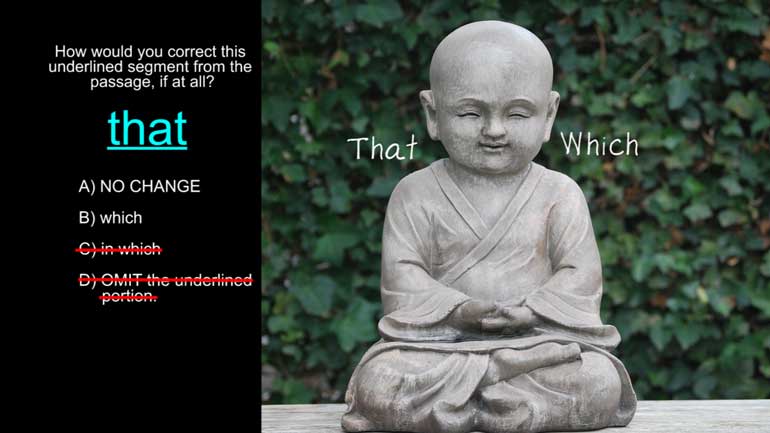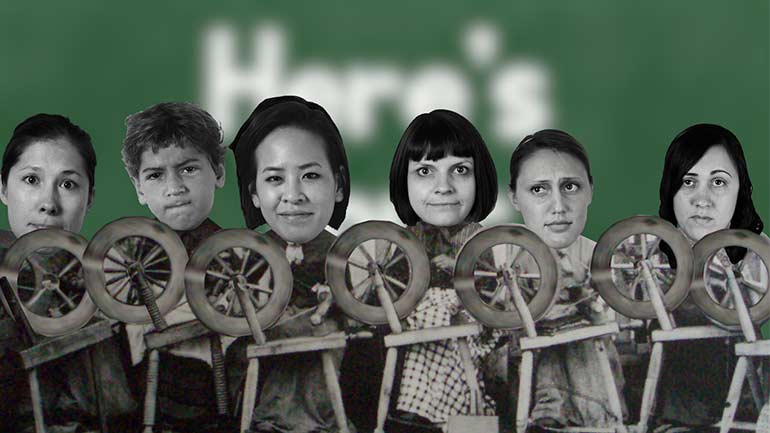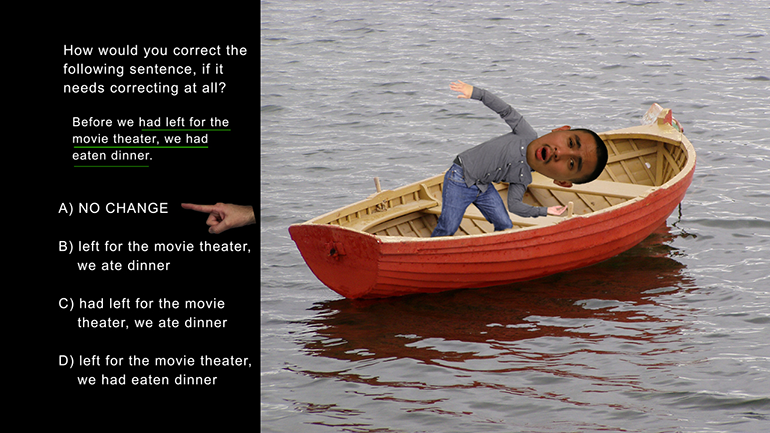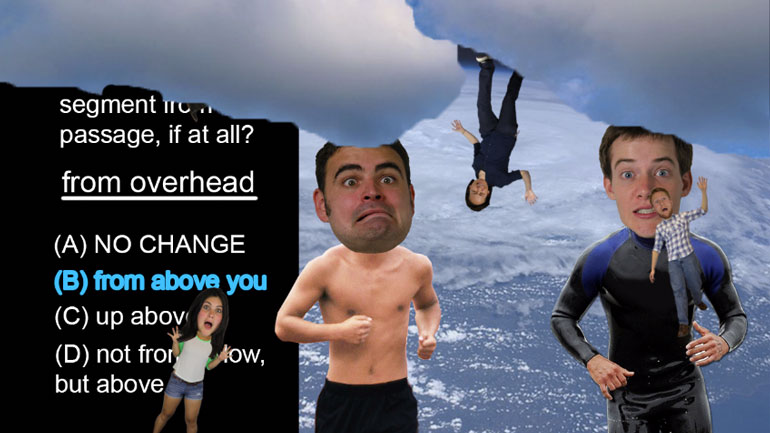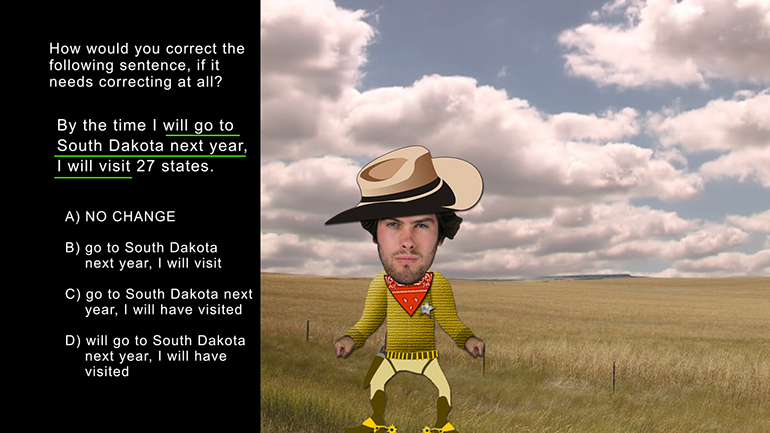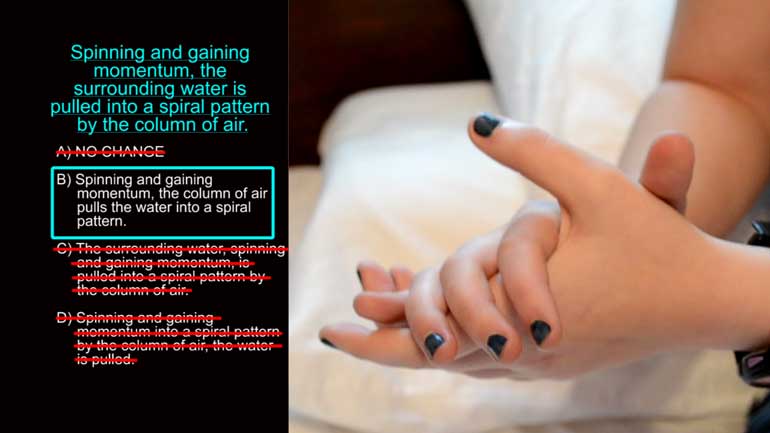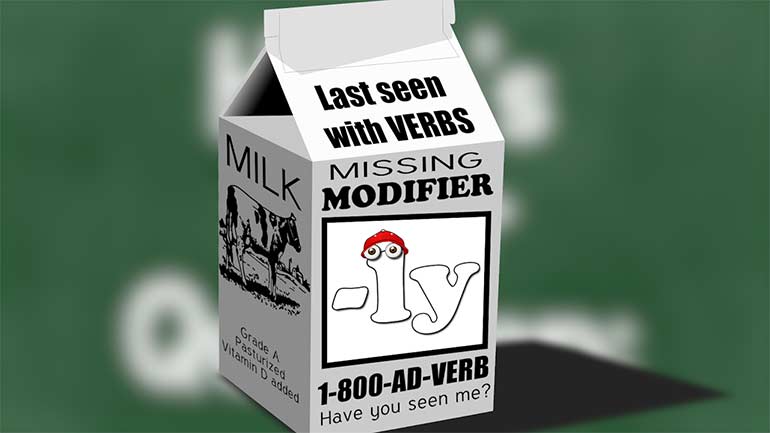ShmoopTube
Where Monty Python meets your 10th grade teacher.
Search Thousands of Shmoop Videos
ACT English Videos 157 videos
ACT English: Grammar and Usage Drill 1, Problem 1. What should replace the underlined word?
ACT English: Organization Drill 1, Problem 1. Which transition works best?
ACT English: Passage Drill Drill 1, Problem 1. Conjunctive Adverbs.
ACT English 1.1 Passage Drill 248 Views
Share It!
Description:
ACT English: Passage Drill Drill 1, Problem 1. Conjunctive Adverbs.
Transcript
- 00:03
Here's your Shmoop du jour, brought to you by coconuts.
- 00:06
Early explorers were disappointed to discover no chocolate inside.
- 00:14
Check out the passage. Read it.
- 00:24
How would you correct this underlined segment from the passage, if at all?
- 00:27
classification however
Full Transcript
- 00:30
And here are the potential answers:
- 00:34
The key to getting this question right is knowing that "however" is a conjunctive adverb.
- 00:40
It's the job of conjunctive adverbs to relate the ideas of independent clauses, which are
- 00:46
clauses that can stand on their own as complete sentences.
- 00:51
There are very specific rules about how to punctuate when using "however" and other conjunctive
- 00:56
adverbs, like "nevertheless," "thus," and "consequently."
- 00:59
If we don't follow these rules, we usually end up with run-on sentences, which is no bueno.
- 01:04
For example, we can eliminate choice (A) for not using any punctuation at all.
- 01:09
We can't go around slapping independent clauses together without using punctuation.
- 01:13
If we did, all compound sentences would be run-ons, thoughts and ideas would mush together,
- 01:18
nobody would know what anyone else was saying, and society would descend into anarchy.
- 01:23
We think it's best to avoid such things, so we'll nix (A) before it causes any more trouble.
- 01:28
Choice (D) does a little bit better by placing a comma after "however."
- 01:31
It is always necessary to place a comma after a conjunctive adverb, whether it's connecting
- 01:36
two independent clauses, or kicking off an individual sentence.
- 01:40
However, comma, choice (D) still turns this sentence into a run-on by not placing any
- 01:44
punctuation before the word "however."
- 01:47
Therefore, comma, we'll get rid of it before chaos ensues.
- 01:51
Like (D), choice (C) correctly places a comma after "however."
- 01:55
It veers off the road, though, when it places a comma before the conjunctive adverb. If
- 01:59
we want to use a conjunctive adverb to join two independent clauses, it's always necessary
- 02:03
to use a semicolon.
- 02:05
Commas just don't cut it, and neither does choice (C).
- 02:07
The only option that correctly punctuates the sentence is (B).
- 02:10
Here, a comma follows "however," and a period divides the two independent clauses.
- 02:15
At long last, we're safe from the danger of run-ons.
- 02:18
At least for now...
Related Videos
ACT English: Punctuation Drill 2, Problem 2. Where should the semi-colon be placed?
ACT English: Punctuation Drill 3, Problem 1. How should this sentence be changed so that it is grammatically correct?
ACT English: Punctuation Drill 3, Problem 2. How should we properly hyphenate the words in this sentence?
ACT English: Punctuation Drill 3, Problem 4. Which choice best formats this list of items?
ACT English: Punctuation Drill 2, Problem 1. Which choice of punctuation best completes the sentence?
